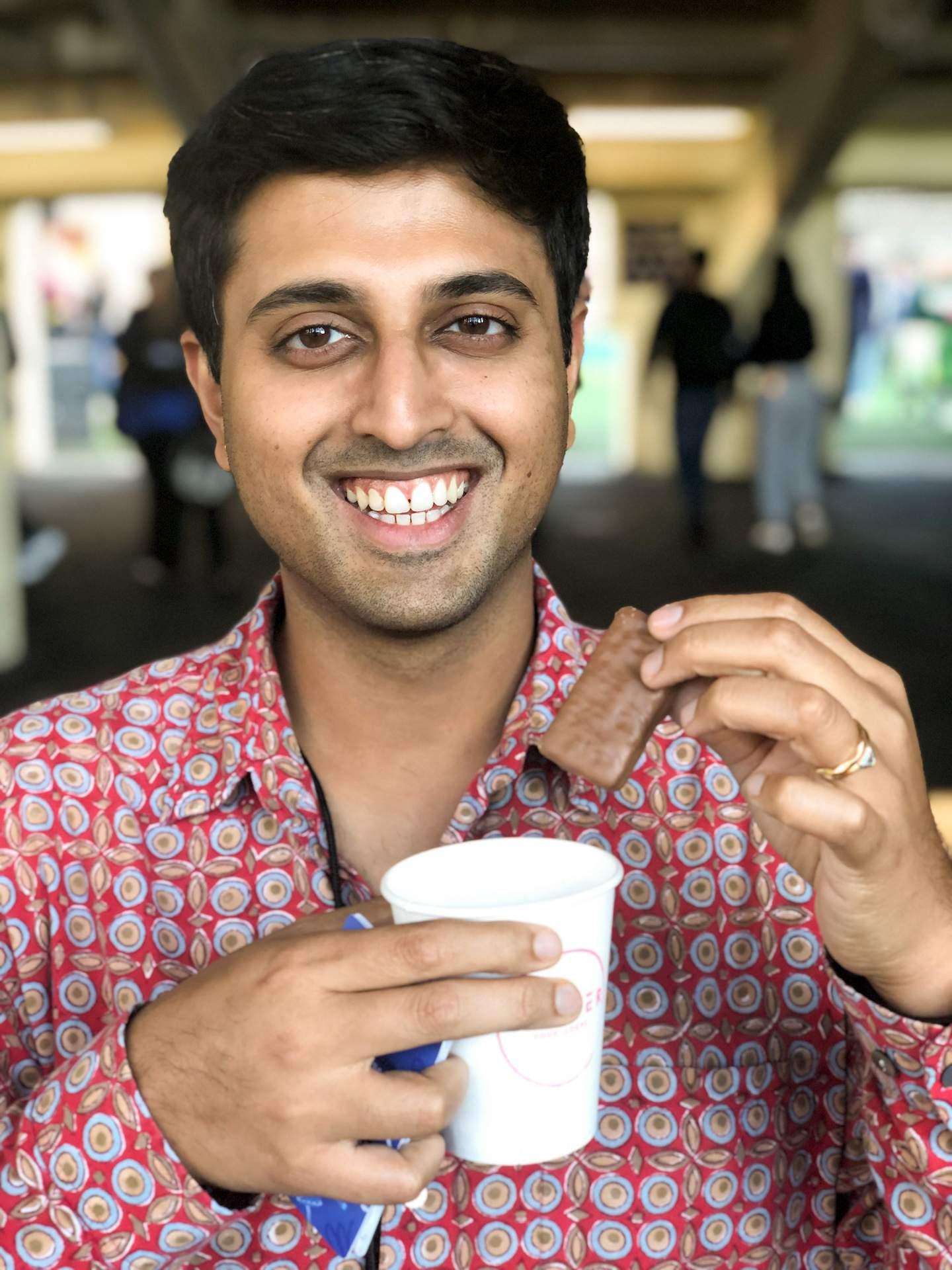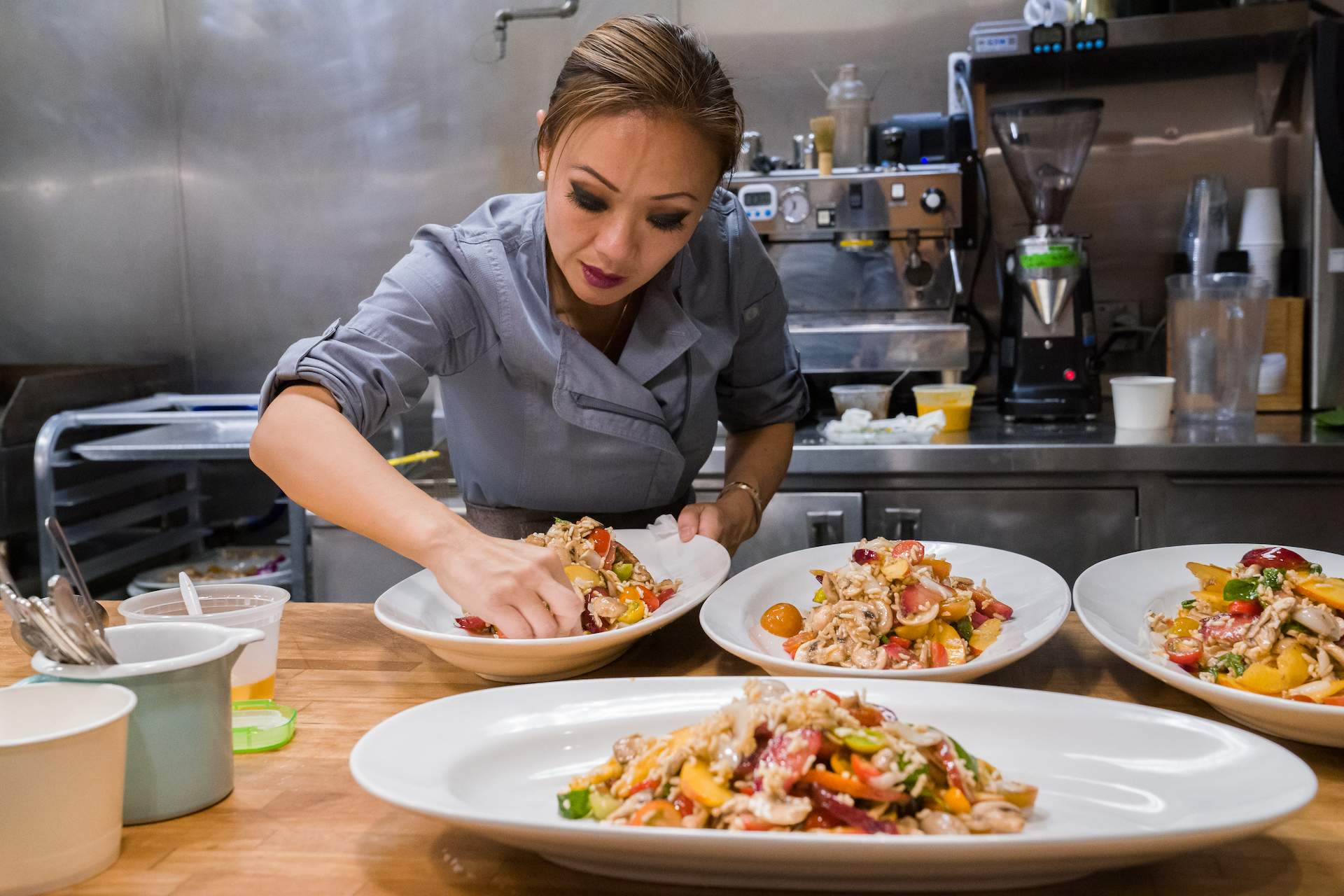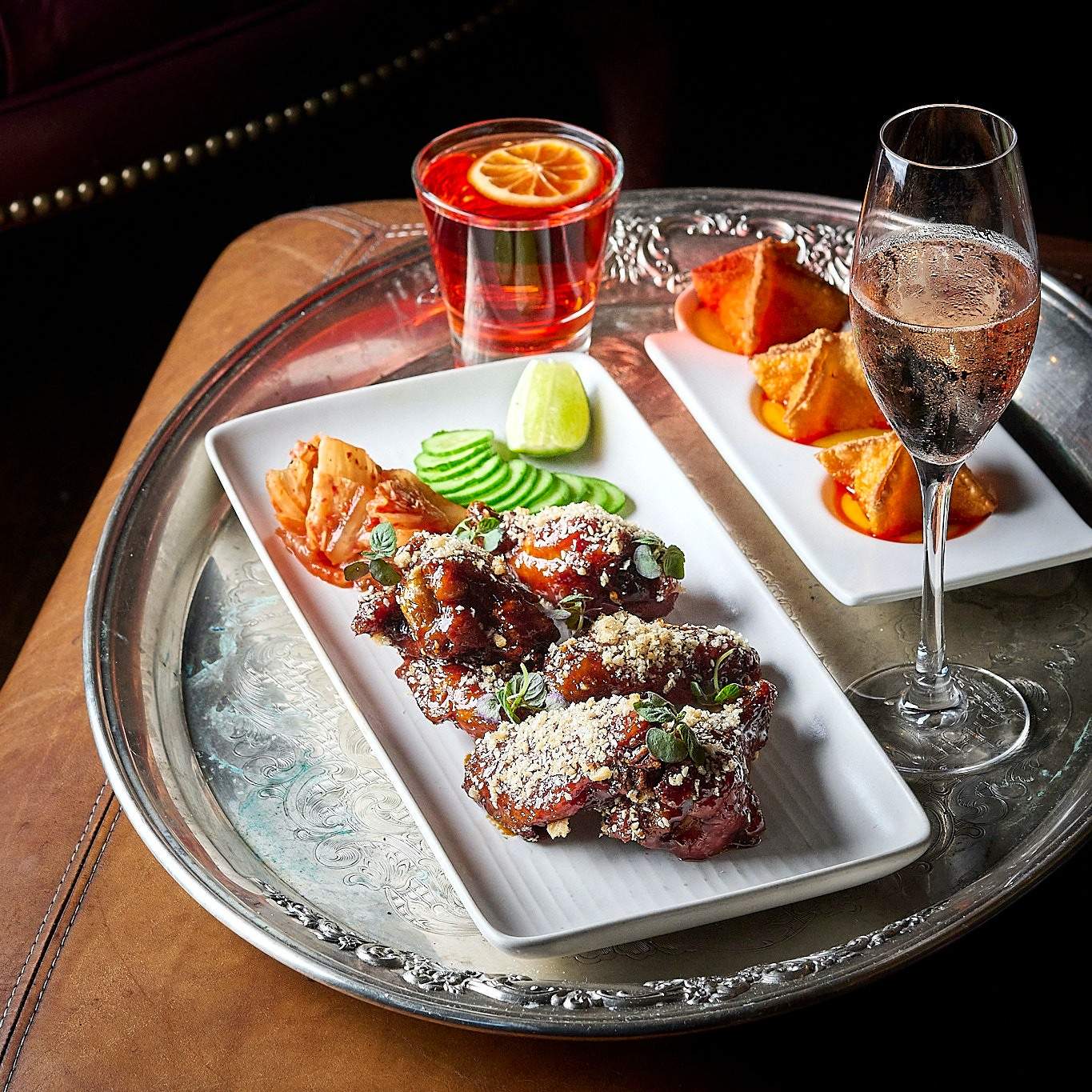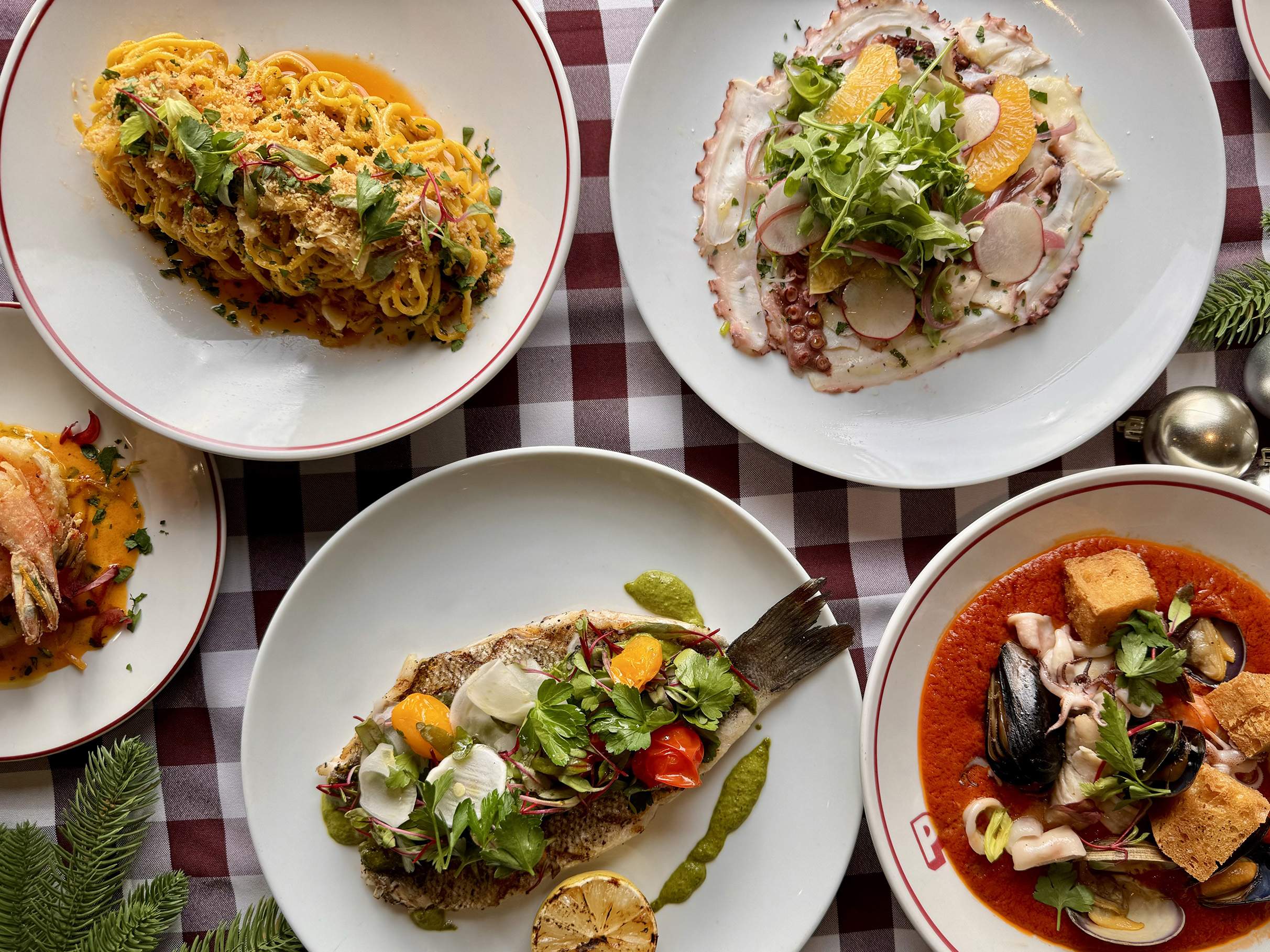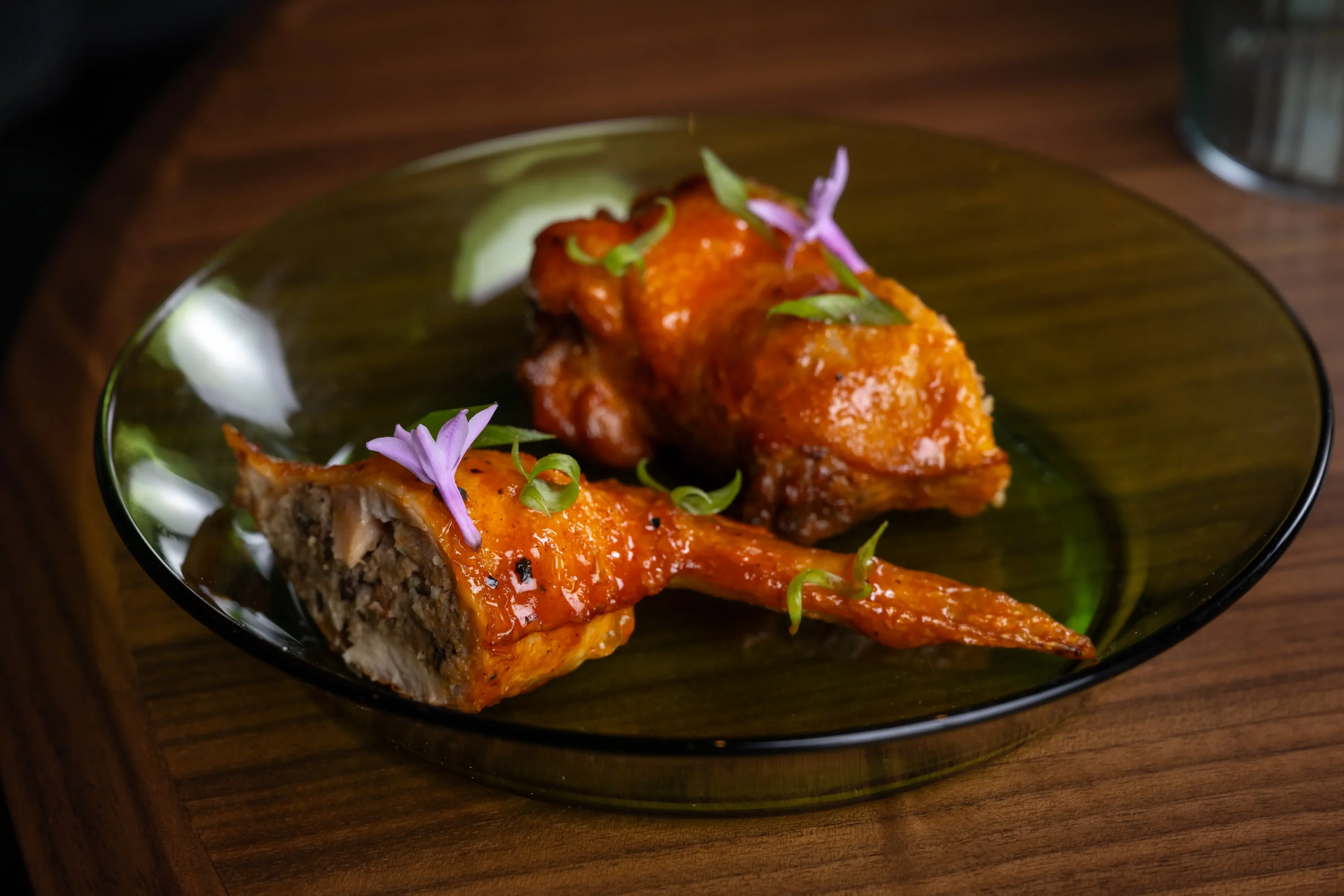When San Francisco chef and restaurateur Kathy Fang opened her own restaurant Fang in 2009, she relied on her experience working at beloved Shanghainese institution House of Nanking. In many ways she was primed for this life, as House of Nanking’s owner and legendary chef Peter Fang is also her father. His family ran successful businesses in Asia for years, but Peter could only go off his memories to share stories of those businesses with his daughter. There were no visual records nor were their achievements noted down in books. The buildings they were in were demolished.
Peter and Kathy Fang are now hoping to change that narrative with their new Food Network docuseries, Chef Dynasty: House of Fang, which premieres December 27. “With our businesses now being on television, there’s a recorded piece of this; we’re going to be a part of history” Kathy Fang says. “Three or four generations later can actually look at it and say ‘our family had this.’ We feel very lucky to be able to do this so future generations can see.”
Kathy Fang is also proud to be a part of growing Asian representation in mainstream American media. In recent years, movies such as Crazy Rich Asians and Shang Chi and the Legend of the Ten Rings have all been praised for their representation, and Kathy Fang is glad to be able to join that list. “There’s been a lot of great traction as of late with Asian representation,” Kathy Fang says. “It’s really neat to have an all-Asian cast and the inner workings of a Chinese restaurant shown on the Food Network.”
OpenTable recently spoke with Kathy Fang about the show, her father’s legacy, and what comes next for the Fang family.
How did this show come about?
Kathy Fang: Three months into the pandemic I got a cold call email from a producer saying ‘I found you on the internet and thought your story was really interesting’ and wanted to hop on a call to learn more about the family business. I didn’t think it would actually lead anywhere, but it never hurts to take a call, right? We actually hit it off. We spoke for more than an hour and the conversation was really easy. He came back to me the next week and said ‘from everything I’m learning about your family, I can make a really successful docuseries.’ He said he’d put a sizzle reel [a short teaser video] together and pitch it to networks.
I love talking to customers and about food, so I always had a dream of being on the Food Network, and I’ve done sizzle reels in the past, but we never actually moved far enough to secure a show [Kathy is also a two-time Chopped champion and has appeared on Alex vs. America, Beat Bobby Flay, and Guy’s Grocery Games]. I thought, ‘Maybe it’s just not in the cards for me.’ But then the producer used our interview and what he found online and we were able to get networks interested in putting money toward a pilot. We had multiple offers, but the Food Network was always the obvious choice for me. The pilot ended up doing really well so they ordered a full series. The whole process basically took about two and a half years.
Why was it important for you to make this show now?
Fang: There’s two big things that I’m really proud of. A lot of the show takes place in restaurants because it’s about restaurant life, but we really wanted to make it a point to show people that this is San Francisco. It is such a beautiful city. We want to highlight all the beautiful things about this city. San Francisco has been in a lot of bad press lately; it was being battered even before the pandemic. I feel like the city needs a bit more positivity. Yes, there are problems, but the city itself hasn’t changed. We would love to see more people come back and be reminded of how beautiful this city is.
[Secondly]I like that the show really shows you the real deal. We truly are a family business. It has always been my mom and dad running it for 34 years [House of Nanking opened in Chinatown in 1988]. There are no investors, there’s no conglomerate, it really is like we say it is. We get to share our food and passion with people. Hopefully this can get more people to come to San Francisco and breathe more life back into the area.
What are some exciting things viewers can look forward to in the show?
Fang: The core of it is that it’s really a family show. It’s focused on the dynamic that I have with my dad, and how it plays out within our Asian culture. This is a common theme for not just Asians but many immigrants, so I hope that people can find some kind of connection and relatability through that. We don’t have to be Mark Zuckerberg to be like [the show] is worthy. You don’t have to have billions of dollars. I feel if people can see that this is worthy of being on national television then maybe it will inspire more people to share their stories.
While filming the show, was there anything that surprised you about yourself?
Fang: My dad is really private, and I was concerned he would be uncomfortable with having cameras with us all the time. We’re not actors and actresses, so if my dad got uncomfortable with a conversation or topic or said he didn’t want to talk about something on camera, then we would have some issues. My dad doesn’t know anything about the reality space, and I didn’t have a reference point to talk to him about it. So we were kind of just jumping in without a clue. But I was surprised by him being there whenever we needed him. [The filmmakers] were always mindful of his timing and making sure he’s comfortable, to make sure [filming] wasn’t too intense.
For me, I was going into it thinking I’m not going to deliver what they’re looking for. I’m not a dramatic person. Like maybe my life is going to be really boring for people. So the surprising aspect to me is that having cameras around didn’t feel unnatural. On the first day of shooting, something just clicked. I’m not saying that I’m good, but everything oddly enough just felt normal to me. I wasn’t always conscious or even aware when at times I would just run off [to do other things] with my mic on.
What was it like growing up in House of Nanking and being so closely involved with the restaurant business?
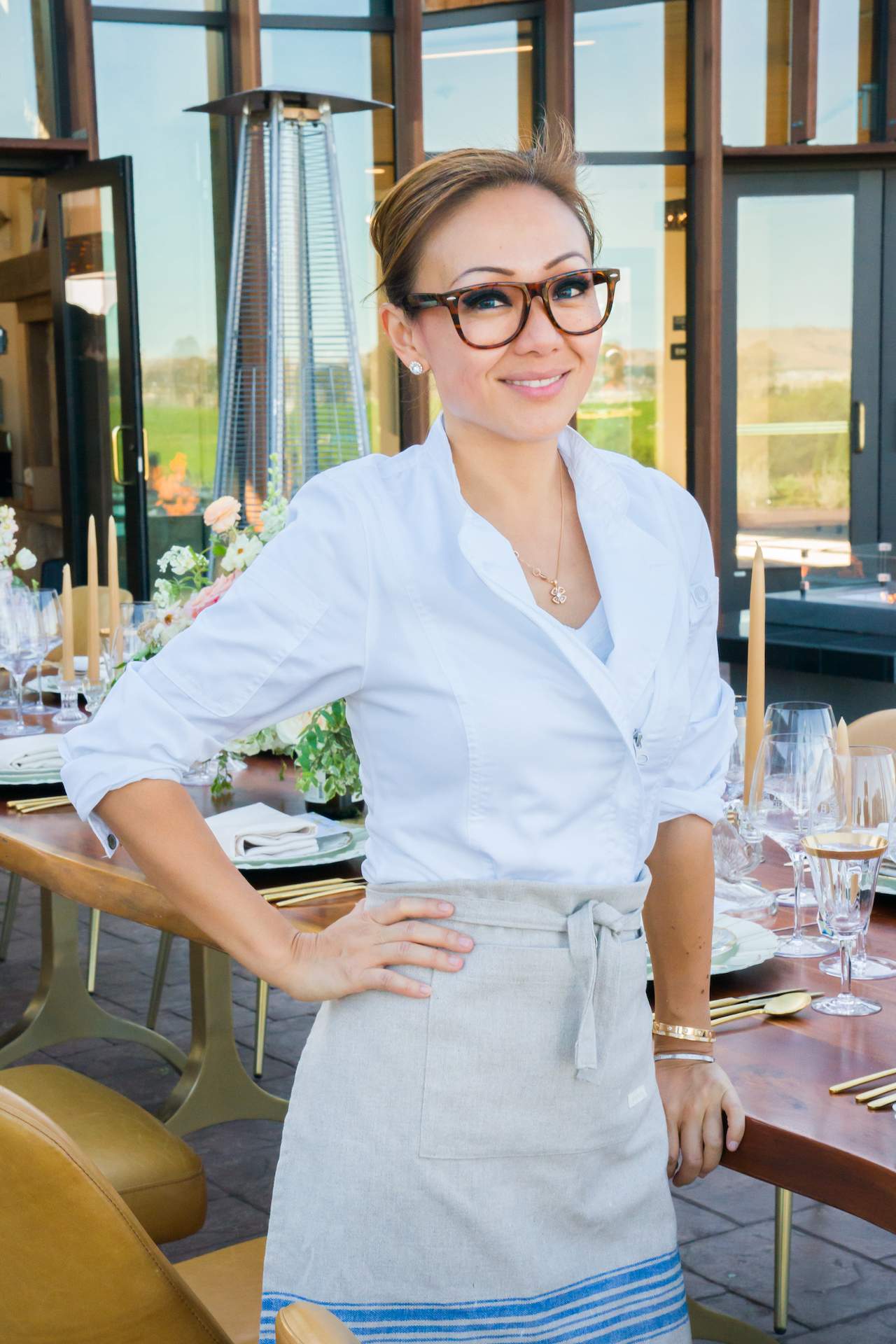
Fang: Growing up in the restaurant industry, there’s definitely good and bad. I struggled a lot with the path my parents chose. There were many times when I grew resentful. It was hard to grapple with at a younger age. I resented the fact that they were there basically everyday from open till 11 pm. They didn’t have money to afford daycare or childcare so the restaurant was my daycare. On a school night, I would push chairs together to make a makeshift bed or sleep on the counter until my arms would fall asleep and my face would go numb. There really is a lot of sweat, blood, and tears. I’ve seen my dad cut his finger and go to the ER, my parents have had burns that are insane. That’s hard to see for a child.
But I also saw how hard they worked. Even though they barely slept, they were tired and exhausted, and they still came back to work the next day. It was difficult for me to see that. In college, I knew I didn’t want that. I wanted balance. I wanted a 9-to-5 job and be able to stay at home and eat dinner with my kids every night. My parents are also very traditional Chinese and didn’t want that [working in a restaurant] for me. It wasn’t like a life goal of theirs to open a restaurant. They were initially just doing it for survival [Peter and Lily Fang immigrated to San Francisco from Shanghai in 1980].
Ultimately though, I found the corporate world to be boring and stifling. So I told my dad I’m coming back and I want to get into the family business because this is what makes me happy. I spent 80% of my time thinking about food and cooking and researching, and I’m naturally good at it, so I thought why am I not doing this? I went from really not liking it, growing up in it, to loving the creative aspect of it. I like how lively it is in a restaurant and how people can connect with you, even when I was younger. It is ultimately my happy place.
What made you want to branch out and open your own restaurant?
Fang: House of Nanking is my mom and dad’s baby. They don’t want to retire, and that is their home. The three of us there is overkill. I started helping them and modernizing at least the operations part, but it didn’t make sense for me to stay there. I always wanted to open a restaurant. And everyone has always been asking my dad to open another location. So I said to him everyone’s saying there needs to be another House of Nanking, but it doesn’t have to be the same, it can be a little different. What does House of Nanking 2.0 look like? Who better to partner with than your dad, so that’s how we got into this thing. From the menu creation to the design, everything is like a mash up of my style and my dad’s.
What do you feel is your parents’ legacy in terms of Chinese food and in regards to San Francisco?
Fang: First off, preserving their legacy has been very important to me. I wouldn’t be here with my success if it wasn’t for my parents. It is very important to me that the soul of House of Nanking doesn’t change, and I hope that I can maintain and grow the business.
In terms of the show, I think in Chinese culture we don’t really talk about our feelings or emotions really. The way we show that is through our actions. My dad worked super hard so that I could have a better life, so that my grandkids could have a better life. I really make it a point to preserve their business and take it further. Even though the appreciation may not have been verbal, I’m hoping that through this show they [her parents] can see that.
In terms of Chinese food, I feel like House of Nanking has been one of the busiest restaurants in San Francisco for 33 years, and my dad has been doing innovative things with Chinese food since 1988. But we don’t really get the cred because we’re not on social media. We don’t get the recognition that some Chinese restaurants get, and we don’t really have any PR or marketing behind us. It irks me sometimes because I think my dad deserves so much more. I feel like this show is really sharing that aspect.
What’s next after the show?
Fang: My goal is to expand and make the Fang family cuisine known all over the U.S. People already come to our restaurants from all over the country. I would like to create a food line where people can buy the woks or the plates we designed, sauces, and all that would be deeply rooted in the Fang family [ethos]. Opening a bunch of restaurants kind of strays from the soul of House of Nanking. I never really want to change that aspect, but I still want to grow the business. If we could bring the Fang flavors into your home, that would be the ultimate goal. My other goal is to write a joint cookbook with my dad that shares both the recipes he’s grown up with and the recipes I grew up with at the restaurant.
This interview has been edited for clarity
Tanay Warerkar is a content marketing manager at OpenTable
